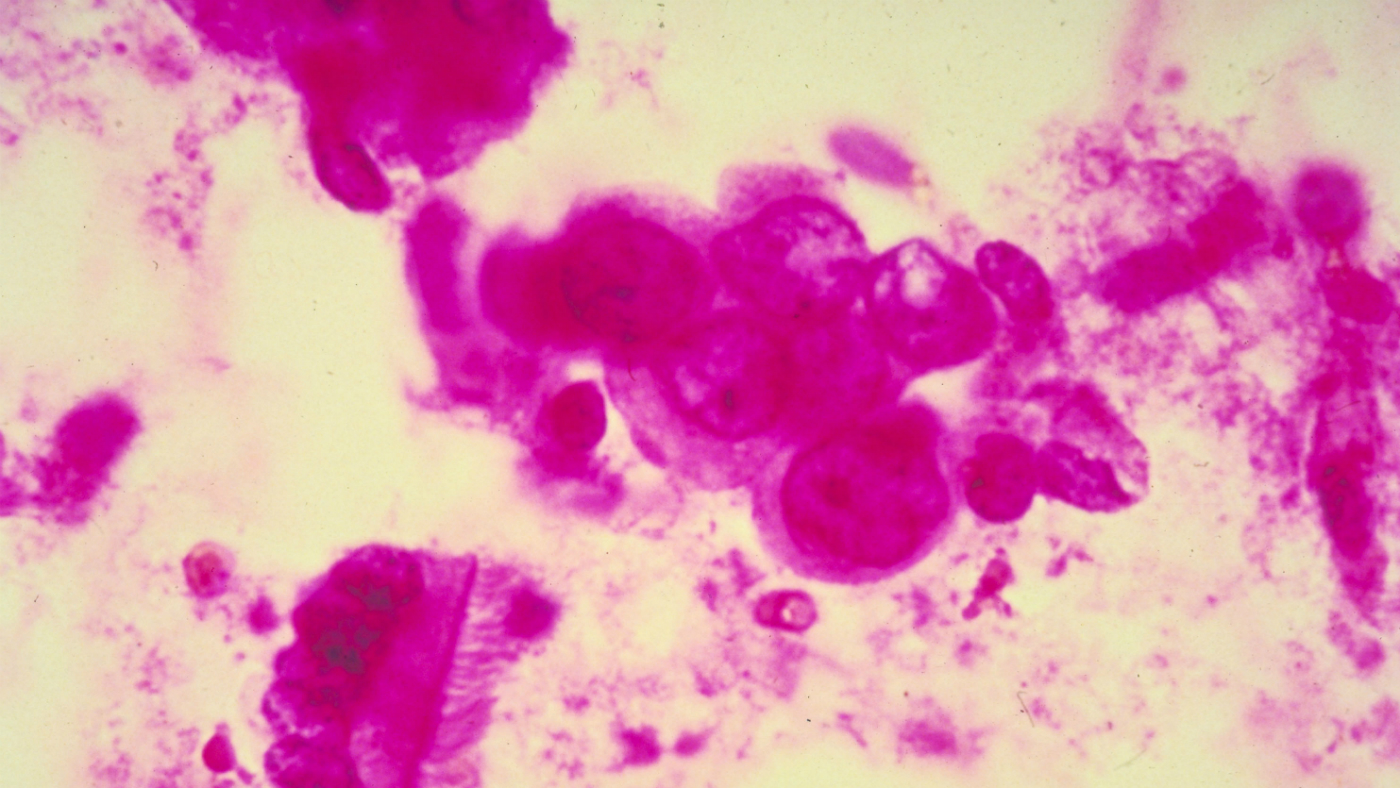Cancer drug offers surprise hope to infertile women
'Astonishing' study finds Hodgkin's lymphoma treatment can lead to huge increase in egg production

A free daily email with the biggest news stories of the day – and the best features from TheWeek.com
You are now subscribed
Your newsletter sign-up was successful
A drug combination used to treat cancer can restore ovarian tissue to a "pre-pubescent" state and stimulate the growth of new egg cells in the ovaries, according to the "astonishing" results of a new study published in the journal Human Reproduction.
Researchers from the University of Edinburgh examined ovarian tissue samples from 14 women who had undergone chemotherapy for Hodgkin's lymphoma using the combination treatment ABVD.
They found that eight of the participants had between four and ten times as many of the follicles which produce egg cells as healthy women and women treated with other chemotherapy drugs.
The Week
Escape your echo chamber. Get the facts behind the news, plus analysis from multiple perspectives.

Sign up for The Week's Free Newsletters
From our morning news briefing to a weekly Good News Newsletter, get the best of The Week delivered directly to your inbox.
From our morning news briefing to a weekly Good News Newsletter, get the best of The Week delivered directly to your inbox.
Women are born with a set amount of egg-producing follicles, which are used up or decay over time, making it increasingly hard for women to conceive. Eventually, the egg supply runs out altogether, marking the onset of the menopause.
"We were astonished when we saw what had happened to the tissue," lead researcher Professor Evelyn Telfer told the Daily Telegraph. "It looked like pre-pubescent tissue with a high density of follicles and clustering that you don't normally see in an adult."
She added: "It is the first time that we have ever been able to see new follicles being formed within the ovary."
The implications for fertility treatment "may be significant and far-reaching", said Telfer.
A free daily email with the biggest news stories of the day – and the best features from TheWeek.com
Researchers are unsure of the reason for the unexpected side effect, but believe the growth of new follicles could be a reaction to the "shock" of chemotherapy.
"If research can reveal the mechanism, it would help scientists understand how women could produce more eggs during their lifetime, which was until now thought to be impossible," says the Telegraph.
Following that, the next stage would be to assess whether the egg follicles generated by ABVD can produce a mature egg able to be fertilised and develop into a viable embryo.
-
 Political cartoons for February 21
Political cartoons for February 21Cartoons Saturday’s political cartoons include consequences, secrets, and more
-
 Crisis in Cuba: a ‘golden opportunity’ for Washington?
Crisis in Cuba: a ‘golden opportunity’ for Washington?Talking Point The Trump administration is applying the pressure, and with Latin America swinging to the right, Havana is becoming more ‘politically isolated’
-
 5 thoroughly redacted cartoons about Pam Bondi protecting predators
5 thoroughly redacted cartoons about Pam Bondi protecting predatorsCartoons Artists take on the real victim, types of protection, and more
-
 Home Office worker accused of spiking mistress’s drink with abortion drug
Home Office worker accused of spiking mistress’s drink with abortion drugSpeed Read Darren Burke had failed to convince his girlfriend to terminate pregnancy
-
 In hock to Moscow: exploring Germany’s woeful energy policy
In hock to Moscow: exploring Germany’s woeful energy policySpeed Read Don’t expect Berlin to wean itself off Russian gas any time soon
-
 Were Covid restrictions dropped too soon?
Were Covid restrictions dropped too soon?Speed Read ‘Living with Covid’ is already proving problematic – just look at the travel chaos this week
-
 Inclusive Britain: a new strategy for tackling racism in the UK
Inclusive Britain: a new strategy for tackling racism in the UKSpeed Read Government has revealed action plan setting out 74 steps that ministers will take
-
 Sandy Hook families vs. Remington: a small victory over the gunmakers
Sandy Hook families vs. Remington: a small victory over the gunmakersSpeed Read Last week the families settled a lawsuit for $73m against the manufacturer
-
 Farmers vs. walkers: the battle over ‘Britain’s green and pleasant land’
Farmers vs. walkers: the battle over ‘Britain’s green and pleasant land’Speed Read Updated Countryside Code tells farmers: ‘be nice, say hello, share the space’
-
 Motherhood: why are we putting it off?
Motherhood: why are we putting it off?Speed Read Stats show around 50% of women in England and Wales now don’t have children by 30
-
 Anti-Semitism in America: a case of double standards?
Anti-Semitism in America: a case of double standards?Speed Read Officials were strikingly reluctant to link Texas synagogue attack to anti-Semitism